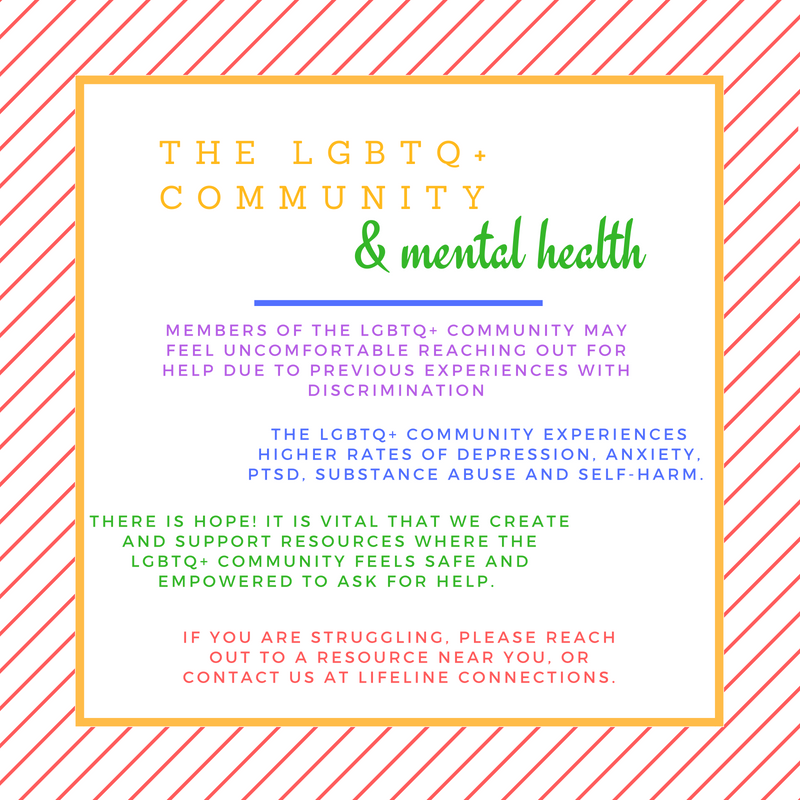
LGBTQ and Mental Health
Mental health and healthcare is an issue for every population. Research shows that prejudice and biases present in the general population can result in negative mental health outcomes for minority populations. One such group is the LGBTQ community. People who identify as LGBTQ are three times more likely to suffer from a variety of different mental health conditions due to the circumstances and discrimination that they are exposed to. This discrimination might extend into the health care treatments and the struggle to find ways of reaching out and finding appropriate care.
Statistics show that LGBTQ youth are also three times more likely to commit suicide or self-harm than those in the general population; it is one of the leading causes of death among LGBTQ individuals form ages 10-24. Over half of the transgender population experience suicidal ideation. The LGBTQ population is also six times more likely to experience depression than the general population due to the discrimination that they face. With these alarming statistics, it is clear that there is still a lot that needs to be improved in healthcare for LGBTQ youth and individuals suffering from mental illness.
As the statistics show for depression, the LGBTQ community also suffers from higher rates of anxiety disorders or PTSD. Research has also found that they experience substance abuse at rates two to three times higher than the general population. They also show higher signs of alcohol abuse in the forms of heavy and binge drinking, which contribute to the development of alcohol use disorder. Members of the LGBTQ community are also 1.5 times more likely to be daily smokers. Substance abuse is used as a coping mechanism due to the lack of support, discrimination, and poor healthcare treatment often faced by LGBTQ individuals However, those who are able to find a strong, supportive community among their peers, family, or community show better outcomes in all of these areas.
Today, healthcare, especially mental healthcare, for the LGBTQ has taken a turn for the better: resulting in a myriad of resources and possibilities for individuals to find a supportive community to help them through their struggles. The lack of understanding or fear of rejection people might experience when seeking treatment for mental health among both LGBTQ individuals and non-LGBTQ individuals are understandable, but it is important to keep trying to find the help that you need. Finding someone who can support you on your path to recovery is imperative. There are many ways to treat mental health disorders, including several kinds of therapy and medications, as well as communities where anyone can find support for their struggles.
Suffering from a mental disorder can be difficult and debilitating, but there are many possible treatment options. It is important for everyone to provide support and understanding in this issue, so that we can help a vulnerable population. If you or someone you know is struggling with a mental health disorder, feel free to contact Lifeline Connections for help. The sooner you reach out for help, the sooner you will be able to feel better. You can visit Lifelineconnection.org or call 360.397.8246 for more information.
